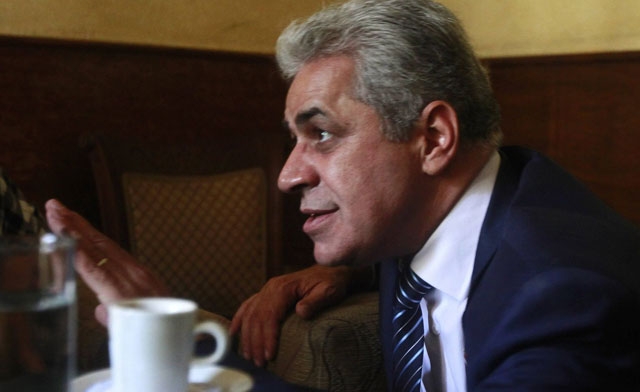WASHINGTON, DC: President Barack Obama nominated diplomat Robert Ford to become the first US ambassador to Syria since 2005. The step is a clear indication of a thawing US-Syrian relationship, and is also seen as a reward to Syria for recent cooperation in Lebanon and Iraq. Growing diplomatic rapprochement between Washington and Damascus comes as part of the ongoing White House effort to loosen Damascus ties with Tehran. Supporters of closer US-Syrian relations argue that Syria can play an important role in quelling extremists in the region such as Hezbollah and Hamas.
Syria has been pursuing two different approaches with regards to its regional policy, including the peace process. On the one hand, it is encouraging the United States to support Turkish efforts to mediate between Syria and Israel, as attested by Syrian President Bashar Al Assad s request last week from US Under Secretary for Political Affairs, William Burns. On the other hand, it is also maintaining strong ties with Iran, Hezbollah and Hamas. If the United States is going to achieve a comprehensive peace, it must do more than merely support the Turkish role.
The soft policy approach that President Barack Obama utilized in the region during his first year in office might have greatly benefited Syria as it got closer with the United States. But this does not appear to have encouraged Damascus to resolve its standoff with Israel. It has not been translated into the flip that the US wants.
Moreover, the recent diplomatic crisis and worsening relations between Israel and Turkey suggest that the latter has lost its credibility as an impartial mediator in the Syrian-Israeli talks. Increasingly more friendly relations between Turkey and hardliners in the region, including Syria, Iran and Hamas, could also be an indication that Turkey does not have what it takes to advance the peace process. While Syria had managed to extricate itself out of its international isolation and mend its relationship with Turkey, Tel Aviv and Ankara have drifted apart.
The recent Turkish shift away from Israel and the West, toward Syria and Iran, is troublesome both for US strategic interests and for peace-making in the region. During the last few years, Turkey has experienced a fundamental transformation with the Islamist Justice and Development party (AKP) at its helm. The new face of Turkey appears to be less committed to Europe and the West than in the past.
Syria sees a bright opportunity to deepen its relationship with Turkey in order to influence regional alliances and enhance its significance in regional politics, while also gaining a strong negotiating position vis-à-vis Washington.
However, Turkey s growing relationship with Tehran could undermine Washington s potential efforts in moving forward the peace process and put Ankara s relationship with the West on a backburner.
Apart from the problematic nature of Turkish mediation, additional obstacles remain for Israeli-Syrian relations. For Syria, any peace negotiation with the Jewish State requires Israel to give up the Golan Heights. It is an issue on which Syria is unwilling to compromise. Nonetheless, Israeli Prime Minister Binyamin Netanyahu has made it clear that Israel will not withdraw from the occupied Golan Heights and the Israeli public appears united on this issue.
For Israel, peace requires the Jewish State to reach agreements with all its neighbors, including the Palestinians, a process that has long been stalled. Syrian-Israeli talks should run parallel to a Palestinian-Israeli track as part of a regional comprehensive peace agreement. If Syria and Israel reached a peace plan prior to a regional settlement, the Palestinians would become the weakest link. In this context, the Syrians will be rendered no longer an influential party in the negotiation process. Moreover, the Palestinians would have no cards left vis-à-vis the Israelis should they go at it alone.
A regional process would give the Palestinians a stronger negotiating position with the Israelis, similar to the one they had during the 1991 Madrid process. For Israel, a comprehensive agreement with all its neighbors – perhaps as the Arab Peace Initiative suggests – could reap greater benefits. Mainly, by normalizing its relations with the Arab and Muslim world, Israel would be accepted in the region.
On Washington s part, comprehensive peace requires Damascus to compromise on its relations with hardliners in the region and commit to participating in the peace process. The Obama administration is on the right track in pulling Syria out of the Iranian orbit. However, it seems that there is a missing link in Washington s efforts: It must not neglect the Israeli-Palestinian dispute, which is the cornerstone of regional unrest.
Rawhi Afaghani is a conflict analysis, resolution specialist and media analyst. The author grew up in a Palestinian refugee camp in the West Bank and now lives and works in Washington, DC. He can be reached by email at [email protected]. This article was written for the Common Ground News Service (CGNews).

